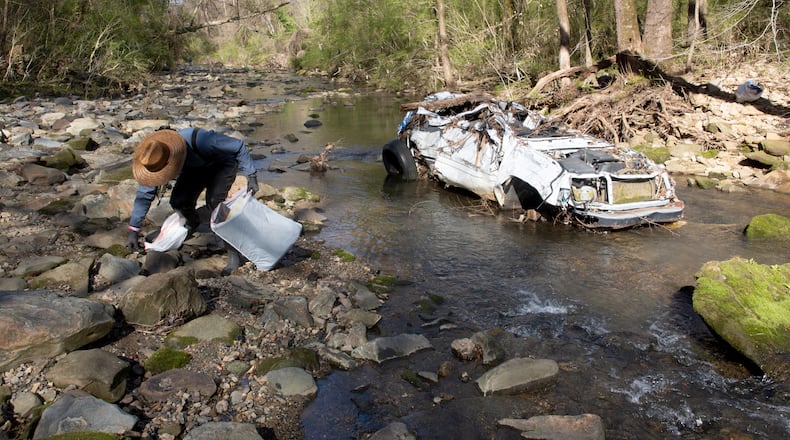A federal judge has ordered the city of Atlanta to pay a $485,000 fine for violating its long-standing federal consent decree put in place to mitigate water pollution.
Since 1998, the city of Atlanta has been under federal mandates to improve wastewater systems, having paid hundreds of thousands of dollars in federal penalties for chronic problems and fixes. Requirements of the agreement include additional approvals from environmental agencies during construction projects that run along protected streams.
According to a judge’s opinion and order filed last week in U.S. District Court, the city of Atlanta failed to get the necessary approval from the Environmental Protection Agency and the Georgia Environmental Protection Division when building a path connecting Grove Park and Westside Park near Proctor Creek.
An undeveloped piece of land along Hortense Way that played a crucial role in the project falls under additional greenway protections, the order says, adding that no more than 10% of the area along designated water sources can be developed for public use, as a way to reduce erosion and pollution.
Despite the protected status of the area, the city of Atlanta received a grant to build a path from Grove Park to Westside Park and plans to develop the property along Hortense Way.
The project was well underway by January 2021, even though the city failed to receive approval from the EPA and EPD, according to the order. City contractors continued work on the pathway while the city’s Department of Watershed Management — which oversees greenway projects — investigated potential violations.
The department requested retroactive approval of the project plans by the EPA, but continued work for another year before the federal agency responded that the work did violate consent decree requirements. By that point, the area had been cleared, utility infrastructure installed, trees planted and a pedestrian bridge built.
The EPA determined demolishing the bridge “would present a greater impact to the stream than leaving it in place.”
In 2022, the EPA levied the $485,000 penalty for disturbing the greenway area, which the city filed a formal dispute against in 2023. Atlanta argued that the EPA was slow to approve the project and that the fine outweighed the environmental harm caused.
Ultimately, the EPA and city’s Department of Watershed Management both agreed to continue the project in compliance with the federal mandates.
A spokesperson for Mayor Andre Dickens said that after the previous administration “self-reported” the project violation, the Department of Watershed Management submitted a mitigation plan to address environmental concerns of the trail project. The EPA approved the plan and the city followed it while completing the project, the spokesperson said.
Mitigation efforts included reforesting the area with native hardwood trees and planting native greenery along the property and streambank.
“The City takes these matters very seriously and completed the construction of the trail in compliance with EPA requirements,” the spokesperson said. “The project provided an amenity which members of the community desired, and which was not opposed by environmental groups as it was consistent with environmental justice principles.”
However, U.S. District Judge Thomas W. Thrash Jr. ruled that the city still violated federal mandates by moving forward with a project without proper environmental approval.
“The Court is not unsympathetic to the City’s efforts to develop the Greenway property at Hortense Way to connect Westside and Grove Parks,” Thrash wrote in last week’s opinion and order. “But for 25 years in a variety of disputes, the Court has said that the Consent Decree must be complied with notwithstanding political pressures or political considerations affecting the City.”
A spokesman for the mayor’s office did not immediately respond to a request for comment on the order.
About the Author
Keep Reading
The Latest
Featured



